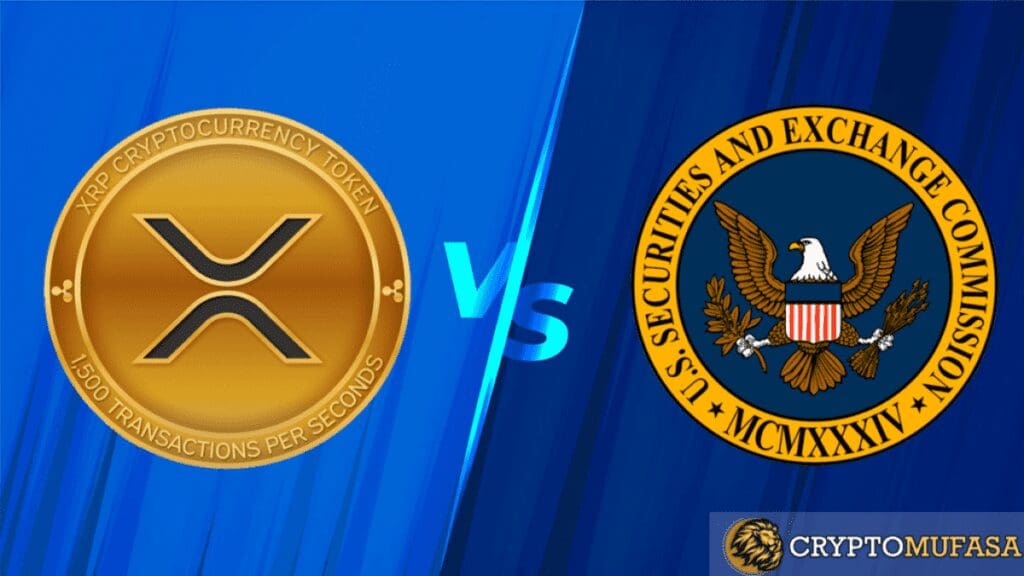The U.S. Securities and Exchange Commission (SEC) has made a significant move in its long-standing legal battle against Ripple, deciding to drop the charges against Ripple’s CEO, Brad Garlinghouse, and Executive Chairman, Chris Larsen.
This development marks a pivotal moment in a contentious dispute between the crypto industry and the SEC over the classification of digital assets as securities.
Ripple Executives Cleared
In a significant turn of events, the U.S. Securities and Exchange Commission (SEC) has decided to drop its lawsuit against Ripple’s top executives, CEO Brad Garlinghouse and Executive Chairman Chris Larsen. The lawsuit, which revolved around allegations of aiding and abetting the violation of federal securities laws in XRP transactions, is now approaching a pivotal juncture.
This development is poised to influence the ongoing debate between the cryptocurrency industry and the SEC, further defining the boundaries of what constitutes security in the crypto world.
Understanding The Ripple SEC Case
The SEC’s pursuit of Ripple and its leadership has spanned several years, marked by complex legal manoeuvres and challenges. The core question in this case has been whether XRP, the cryptocurrency associated with Ripple, should be categorized as a security, subject to SEC regulations, or as a digital asset with a different classification.
The SEC alleged that Ripple violated federal securities laws by offering XRP to the public. The case evolved into a multifaceted legal battle with Ripple facing allegations regarding its dealings with retail investors as well as institutional investors.
SEC Drops Charges Against Garlinghouse And Larsen
In a twist, the SEC has chosen to dismiss the aiding and abetting charges against Ripple’s top executives, Garlinghouse and Larsen. This dismissal comes as a mutually agreed decision between the parties and is characterized as being with prejudice, meaning that these charges cannot be reintroduced in the future. While this represents a significant legal victory for the two Ripple executives, the SEC remains focused on pursuing its claims against Ripple as a company.
Ripple’s Previous Victory
It’s essential to recall that Ripple already achieved a partial victory earlier in the case when the judge ruled in July that the company had not violated federal securities laws in offering XRP to retail investors through exchanges.
However, the ruling also acknowledged a breach of securities laws concerning the sale of XRP to institutional investors. This prompted the ongoing discussions between the SEC and Ripple regarding the appropriate remedies for this violation.
Implications For Ripple And The Crypto Industry
The decision to drop charges against Garlinghouse and Larsen is a significant development that may shape the future of the crypto industry’s relationship with regulatory authorities like the SEC. While the dropped charges pertain to institutional sales, the fundamental question of XRP’s classification as security remains a central point of contention. This aspect is yet to be resolved and could impact how cryptocurrencies are treated under U.S. securities laws.
The Price Of XRP And Ripple’s International Reach
Upon the announcement of the SEC’s decision, the price of XRP experienced an uptick of approximately 4.1%, reaching $0.51. It’s noteworthy that Ripple has expanded its global operations, with nearly 90% of its business conducted outside the United States. This international footprint underscores the significance of regulatory clarity in the crypto industry.
Future Legal Battles And Setting Regulatory Standards
The SEC’s struggle to classify cryptocurrencies as securities has significant implications for the wider crypto landscape. It is in the absence of comprehensive crypto regulatory laws from Congress that these courtroom battles are potentially shaping the standards for U.S. government oversight of digital assets. This ongoing legal drama holds the potential to establish a precedent for the classification of cryptocurrencies and their interactions with regulatory authorities.
Legal Tactics And The Ripple Decision
Some experts speculate that the SEC’s decision to drop charges against Garlinghouse and Larsen might be a strategic move. This could enable the SEC to expedite the process of appealing the previous court decision that favoured Ripple, bypassing a lengthy trial. The cryptocurrency community, as well as legal experts, closely watch these maneuvers, given their implications for the future of crypto regulations.
Conclusion
Ripple’s journey through the U.S. legal system remains a prominent case study in the evolving relationship between the cryptocurrency industry and regulatory bodies. As the SEC drops charges against the company’s executives, the industry faces critical questions regarding the classification of digital assets and the extent of regulatory oversight. The outcome of this legal battle will undoubtedly set a precedent and shape the future of the cryptocurrency landscape.

